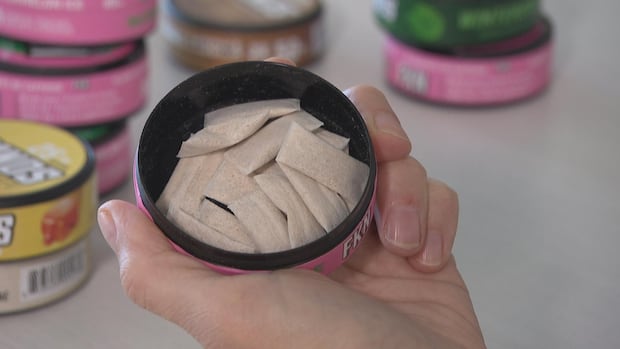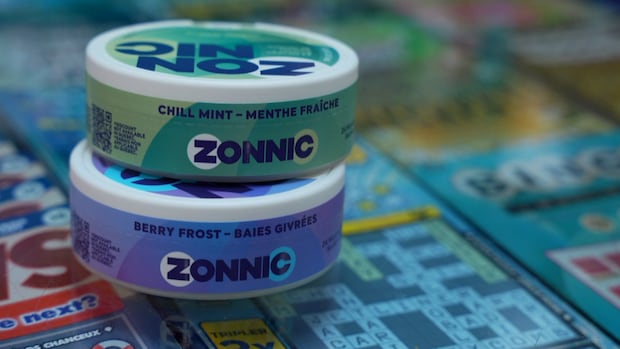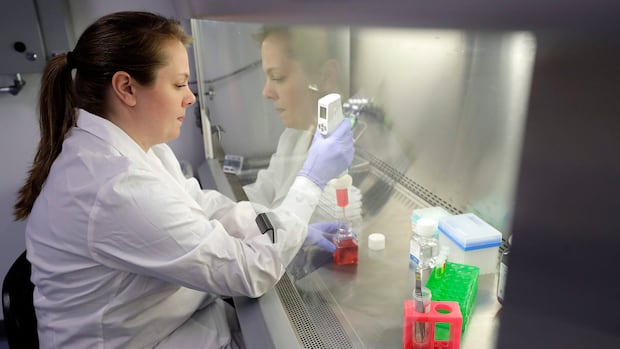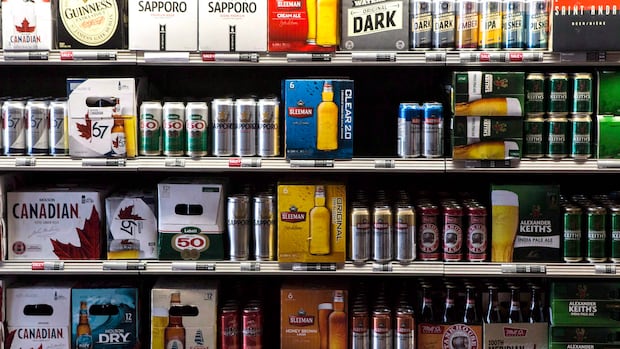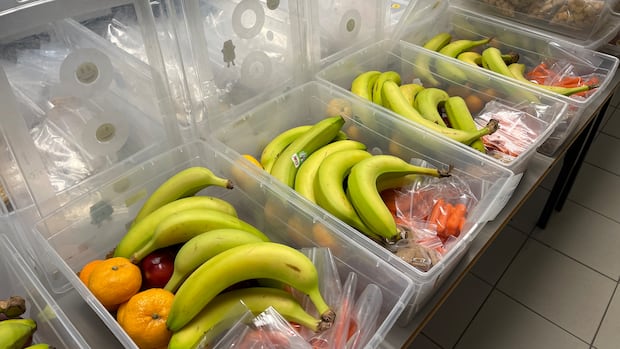They look like small, pillowy cushions. They come in flavours like chocolate and blueberry, and they promise a zap of energy.
Caffeine pouches are all over social media platforms. Videos on TikTok show young people trying them out. Others point out they’re available to buy, even for underage people. Some mention they can be used if you’re struggling to stay awake in class.
Health-care professionals say caffeine pouches are getting more popular among young people on social media. But they’re urging caution.
What are caffeine pouches?
Caffeine pouches look similar to nicotine pouches. They also include herbs and flavourings, and are meant to be placed between the lips and the gums.
The pouches’ caffeine dosage varies. Some have 50 milligrams — equal to about a half-cup of coffee. Others can go up to or even exceed 200 milligrams. One box usually contains about 15 pouches.
“Gums have a lot of blood vessels, so there’s very quick absorption of the caffeine into the bloodstream, which means it can reach the brain and also the heart very quickly,” said Dr. Nicholas Chadi, a pediatrician at Montreal’s Sainte-Justine University Hospital Centre.
The rise of caffeine pouches comes as nicotine pouches are also becoming popular, especially among young men. Some videos even show people using both pouches at the same time.
Are there risks?
The immediate effects, Chadi says, will likely include a rapid heart rate and increased alertness.
He’s not too worried about adults using a limited number of pouches, like one a day. He’s worried that teens and young adults will start using several, sometimes at once — just like many do on social media.
“The way they’re talked about in social media and other places really do appeal to young people,” he said.

Pediatricians suggest a limit of 100 to 200 milligrams of caffeine a day. It’s easy to max out that limit even with just one pouch, depending on its strength, Chadi says.
“That can add up pretty quickly, to two, four, six cups of coffee, all at once, going straight to the bloodstream.”
Caffeine is also added to a wide range of products, like certain sodas or over-the-counter medications. Some products — like chocolate — have it in them naturally, though some companies add more. That can compound the risk, says Michael Chaiton, a senior scientist at the Institute of Mental Health Policy Research at Toronto’s Centre for Addiction and Mental Health.
“The combined dose of those products of the caffeine and those products could reach more dangerous levels, or more harmful levels on their own.”
Too much caffeine can lead to anxiety, heart palpitations, feelings of paranoia and feeling very unwell in the moment. For some, the reaction may be much more severe.
“A body that’s naive to caffeine, or is smaller, may respond very strongly to that with some risks such as heart palpitations, cardiac arrest, or even overdose,” Chadi said.

Dr. Michael Mak, a sleep expert at CAMH, worries about young people getting hooked on caffeine after using these pouches for a prolonged period of time.
“Your body would get used to it and you’ll have dependence. You might become addicted to these pouches.”
He worries that this will lead to or worsen pre-existing sleep problems. Caffeine dependence could also be masking other health issues, like a condition that causes fatigue.
There hasn’t been a lot of long-term research on caffeine pouches, experts say — and that should warrant caution.
“Not to mention, there’s other concerns in how it affects your teeth, discolouration, negative effects on your gums,” he said. “These are all things that we have to be worried about.”
‘Talk to your parents’
Companies that sell caffeine pouches online told CBC that their products aren’t meant for minors.
That includes Miami-based LyvWell, whose pouches come in flavours like red gummy bear, pink lemonade and mango crush. They contain 56 to 225 milligrams of caffeine each.
In a statement to CBC News, it denied marketing to teens, and said its product packaging “includes clear caffeine warnings and states that the product is not recommended for minors.”
The federal government is cracking down on the sale and marketing of flavoured nicotine pouches, which it claims are designed to attract teens. Starting August 28, they can only be sold from behind pharmacy counters, and some flavours are banned outright.
Another company, San Diego-based Nectr, told CBC News its target demographic is between the ages of 24 to 45.
“Those are the barriers we stay within,” said co-founder Jared Martin.
But some kids do reach out about caffeine pouches: “Our instant response is ‘talk to your parents,'” he said.
Health Canada has rules on how much caffeine can be added to products. In a statement, it said it is investigating several instances to see if the law is being respected.
“If non-compliance is found, Health Canada will act, which could include onsite visits, product seizures or public communication,” said the agency in a statement.
Chadi, for his part, says he’d like to see more regulations on the caffeine pouches.
“As a pediatrician, I’d like to see clear and mandatory health warnings on these products.”
The bottom line, he says, is this: Too much caffeine can do real harm to a young person’s health, and not enough of them know that.


